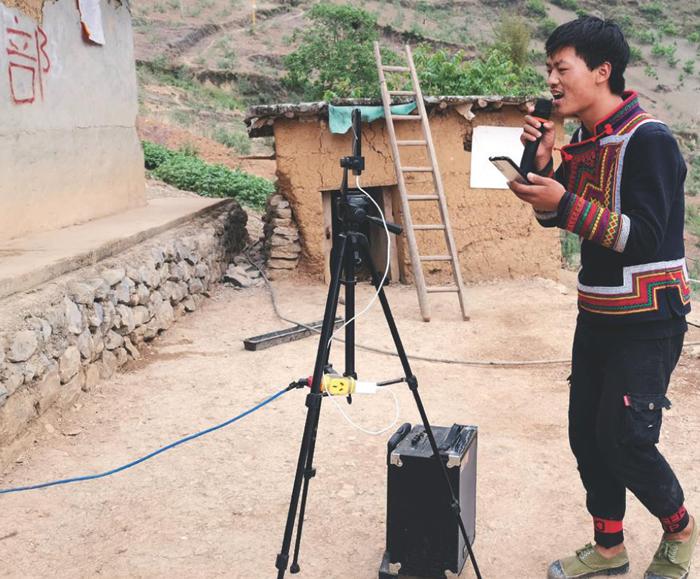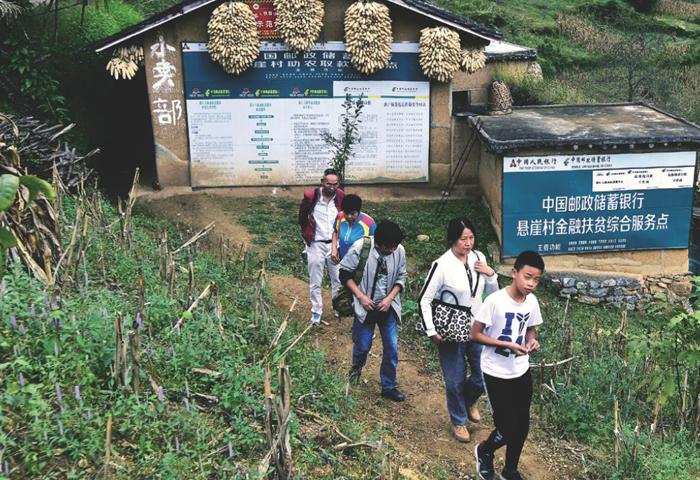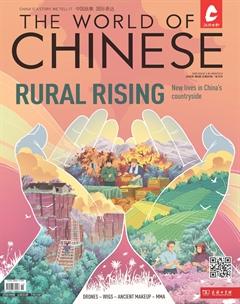rural rising



We must “let some get rich first,” Deng Xiaoping famously stated, summarizing a development strategy that has turbo-charged Chinas urbanization for decades. As emerging megacities drained the countryside of working-aged people, China gave rise to the second most billionaires in the world, all the while leaving behind 600 million in rural areas who live on less than 1,000 RMB (150 USD) a month.
Now, Chinas leaders are promising a great recalibration: President Xi Jinping declared in 2014 that China would invest hundreds of billions of RMB into the countryside to eradicate extreme poverty by the end of 2020, at the pace of one million people per month.
On the eve of Xis audacious deadline, we go on the road in Jilin, Zhejiang, and Sichuan provinces to witness on-the-ground efforts to inject new life into declining villages. Some residents experiment with new methods of income—such as livestreaming and tourism—while others bring back rural cooperatives. As remote corners are connected to roads and internet, and college graduates forego the city grind to pursue more bucolic dreams, Chinas countryside seeks a second life. So how far away is that “rich and rural” country life?
扶貧四十多年来,中国农村发生了翻天覆地的变化。
走进四川凉山“悬崖村”、浙江温岭“彩虹村”和吉林延边州,看网红直播、旅游农业、新型农村合作社和越来越多选择
回乡创业的年轻人如何改变了当地人的生活
LIVE FROM LIANGSHAN
Residents of “cliff villages” broadcast their lives at 2,500 meters altitude
When 39-year-old Mose Erti first saw young people in his village holding selfie sticks and gesticulating wildly at their phones, he thought they looked like lunatics.
It was incomprehensible to villagers of his age that people could earn money just talking nonstop at an invisible audience. “How can they have so much to say?” he mused to Beijing Youth Daily in 2018.
“Good morning, sisters and brothers! Today Wu Da is carrying a 50-kilogram bag of rice and oil up the mountain,” the young man yelled into the camera, his face dripping with sweat.
He gripped the railing of a steel staircase in one hand and a selfie stick in another, so that his 1.2 million followers on the video streaming app Kuaishou would not miss witnessing his vertiginous climb up the 800-meter cliff. “Its really heavy. Hope you give Wu Da a double heart and star, and follow me! Thanks for your support!”
Just four years ago, the closest distance between Atulieer village and the online world was an internet café 70 kilometers away. There was no mobile network coverage in the village, and few residents had a phone, except members of the village committee.
Yet by the beginning of 2020, over 180 people in a village of 500 had made accounts on livestreaming platforms Douyin and Kuaishou with the word “Cliff Village” in their usernames, showing the world their lives at 2,500 meters above sea level in the mountains of the Liangshan Yi Autonomous Prefecture.
The village in Sichuan province first rose to internet fame due to a viral video in 2016 that showed 15 children going to and from school via ladders made of vines, their backpacks strung together with rope for safety as they edged up the sheer cliff. The video shocked millions of viewers, and even President Xi Jinping, before a full assembly of the nations leaders at Chinas congressional meeting in 2017, said it “made the heart heavy.”
The theme of President Xis speech was Chinas poverty alleviation campaign, which aimed to lift 70 million out of poverty by the end of 2020. “Cliff Village” quickly became the campaigns poster child, as a mountainous and isolated part of the country that symbolized a “last frontier” for poverty alleviation. From 2012 to 2020, Sichuans investment in transportation infrastructure exceeded 100 billion RMB for nine consecutive years in the final push to connect every last village to a road.
With all eyes on “Cliff Village,” changes came swiftly. The town built a steel ladder to replace the one made of vines in 2016, and erected a cell tower in 2017. The arrival of these physical and digital channels to the outside world transformed village life indelibly.
When the cell tower was completed in 2017, 22-year-old Mose Labo, who was part of the ladders construction team, bought a smartphone and asked a friend how to upload videos. He started to shoot gravity-defying footage of himself leaping across steel railings and walking across suspension bridges, becoming known as the “Cliff Village Flying Man.”
Gaining 126,000 followers in five months, Labo soon discovered that one video could earn him between a few dozen to 500 RMB in donations from fans, credited to his user account and redeemable through WeChat. Previously, his income from farming was less than 1,000 RMB a month.
Labos friend, Mose Subure, who also goes by Yang Yang, started livestreaming the same year. Rather than performing heart-stopping stunts for the camera, though, Yang Yang promoted agricultural products, eventually using the platform to help villagers sell walnuts and other produce.
Many households have eagerly bought smartphones and internet routers. “The elderly people love our internet routers very much. Many covered theirs with a thick cloth to protect it from dust and mice. We had to advise them to remove the covering, as it interfered with the signal,” Mose Erti told Beijing Youth Daily in 2018. “Young people would hold their phones day and night and refuse to leave it, watching videos and chatting.”
However, Mose Erti recounted, the transition was not without rough patches. Unaware of the difference between Wi-Fi and mobile data, many families racked up phone bills of up to 3,000 RMB in the first month, far surpassing the 100 RMB monthly stipend they received under the poverty alleviation project (the village leaders negotiated with the phone companies to drop the charges).
Yang Yang notes that interactions with those outside “have brought big changes in customs in the village. During my broadcast, some netizens asked why we squat when we eat,” he told Beijing News in 2017. “Now, many people in the village have begun to sit and eat.”
Ah Niu, an Atulieer resident with 190,000 followers on Douyin, told TWOC that he is the owner of his villages first dining table, a gift from a netizen who watched his videos last year. The wooden table was shipped to the nearest town, where Ah Niu picked it up and carried it up the mountain on his back.
He has since also paved the dirt floor of his home with cement, and strung flowered cloths to decorate the walls that hang with the backpacks of his four children. “Before, we could only guarantee that we werent hungry,” said Ah Niu.
Chen Guji, a 39-year-old collector of wild honey, took to livestreaming in 2018. Selling his honey at 300 RMB per kilogram, he made 7,500 RMB in his first year, and celebrated by slaughtering a 50-kilogram pig for the Yi New Year to share with his family and neighbors.
The pace of change has created a gulf between those fluent in Mandarin, and those who arent. On the way up the mountain, a 24-year-old man named Qiongtie told TWOC in broken Mandarin that he is unable to livestream because he cant read, and doesnt have the money to buy a smartphone. Instead, he can make 150 RMB a day carrying baggage up for tourists.
Ah Niu, though, pointed out that he only attended school until the second grade. He posts videos by memorizing the buttons, and chats with his followers using voice messaging and speech-to-text functions within the livestreaming app.
Not all of Cliff Villages residents look positively on the new trend. “Every young person in the village is doing it,” said Lao Ma, livestreamer Wu Das uncle. “But 50-year-olds like me,” he clucks to TWOC, “are too attached to our dignity to act like that in front of a camera.”
Village doctor Hailai Jiji was even more critical. “To display your suffering to others and elicit their sympathy is very bad,” he told Xinhua News in July. He surmises that audiences may eventually tire of watching young people in the village eat potatoes and climb the ladder, and young people should instead pursue skills or knowledge that can lead to reliable work.
Lao Ma relocated to the base of the mountain 20 years ago, and this year moved into a modern apartment subsidized by the government through the poverty alleviation project. His grandchildren have come down from Cliff Village to attend school, which he hopes will afford them more choices in the future than farming—or livestreaming.
The blogger Peigen insisted in his 2019 vlog “Around China in Ten Years” that “what people in Liangshan need is not injections of money, but education.” He notes there are villages in similar conditions near Atulieer that cannot rely on internet fame to improve their living standards.
As the poverty alleviation program heads into its last months, livestreamers in Liangshan now face new challenges and divergent fates. Many villagers, including the 84 households officially designated as “impoverished households,” have been relocated by the government to homes below the mountain.
On May 3, Labo livestreamed his departure from Cliff Village into a furnished, 100-square-meter apartment in Zhaojue county seat. Through his lens, lines of villagers descended the steel ladder with bags and baskets for the last time.
Without fields to cultivate, and often without Mandarin and other marketable skills, many relocated villagers have struggled to find a job in town. Thanks to Labos numerous interviews on TV from his livestreaming career, though, he has been singled out for a contract with a tourism company.
Some, like Yang Yang, have chosen to stay behind. While many fans comment on his videos that life on the mountain is “too poor” and encourage him to move, he tells media that he hopes to one day open an inn in the village to share with visitors the life and culture of his community.
In the meantime, he continues to promote local products through the screen of his phone. People livestream because they “simply want to showcase themselves,” he told Beijing News. “Some tell jokes, some are cooking. I also want to try and show our mountain because it is beautiful.” – Tina Xu (徐盈盈)
CHASING RAINBOWS
A fishing village seeks “internet fame” against the tides of rural migration
Xiaonuos residents say the village got its colors when a local official took a trip to the seaside of Greece and Italy, and came home convinced that he could make the declining fishing community in Zhejiang province look just as postcard-perfect.
Over several months in 2017, each of the 500 households of Xiaonuo village was assigned a pastel hue to paint over their stone and cement homes: coral pink, sunflower orange, lemon yellow, or sky blue. After that, it didnt take long for cool-hunters to begin flocking to the remote village, with some even christening it “Chinas Santorini.”
“Nowadays, when people travel, taking photos is as important as actually going there,” says Dai Hong, 27-year-old owner of the pink-washed Lindo Art Space, sitting in her coffee shop overlooking the sea.
On a sunny afternoon at Lindo, visitors stake out positions for snaps: lounging by the pool against a turquoise wall, sipping lattes next to tropical plants. “I have created a space to fulfill the dreams of our generation,” boasts Dai.
Dai credits the rise of “Rainbow Village” to Xiaohongshu and Weibo, social media platforms popular among young Chinese. The former, officially known in English as RED, is home to 300 million users, the majority of whom are female and under the age of 30. It is a mecca of lifestyle bloggers who have helped numerous consumer trends and travel destinations shoot to fame, including “Rainbow Village.”
The rise of Xiaonuo village is emblematic of an economic model prevalent in the Yangtze River Delta where entire villages made their fortunes by mastering a single product. Yet as Chinas manufacturing rush cools, its leaders have turned their development focus toward rural communities—either by reviving agriculture, handicraft industries, or traditional architecture as vehicles of “rural nostalgia,” or adopting new-age themes like becoming “the ultimate fairytale backdrop,” as some bloggers have described Xiaonuo.
Like other villages, Xiaonuo had been gradually losing residents as young people joined the 280 million Chinese moving from the countryside to the cities, with the population dwindling so low that three other villages governments were merged with Xiaonuos last year.
Once an island in the East China Sea, Xiaonuo was connected to the Zhejiang mainland in 2018 when the strait separating it from the shore was filled to form a land bridge, much of which is now a vast parking lot that can fit over 100 cars. The 50 tour buses that arrive at “Rainbow Village” every day unleash new tides of DSLR-wielding visitors into the hilly complex of splendidly colorful houses.
Like many similar “theme towns” that pursue development unmoored from local culture and history, the village strains for a narrative—some residents tell visitors that the colors began with a woman who painted her house to guide her husband home from sea, and other women copied her until the whole village was saturated with colors. “Its a nice story, no?” smiles Dai wanly.
Betting on the villages touristic rise, the Dai family, originally from the nearby Jiangsu province, borrowed money from relatives to renovate old buildings at the crest of Xiaonuo Village in 2018. Having signed a 10-year lease to rent the land from local families, they are the first—and, so far, only—outsiders to come to Xiaonuo to open a business catered to tourists, taking a lions share of visitors.
Dai Lianhua, Dai Hongs mother, informs the visitors that they must cough up 10 RMB to take photos, or buy a cup of coffee. “It cost 3 million to build this place,” she explains. “They cant be taking up our space for free, right?”
The influx of visitors from the outside world has turned life in Xiaonuo upside-down—in some senses, literally. Real estate values have flipped; fishing families used to prefer houses at the base of the island to avoid a hilly climb home after a long days labor at sea.
“Now, they all ask us: Do you have an ocean view?” says an exasperated local, Ms. Chen, whose family lives at the bottom of the hill. Chens family charges 200 RMB a night for a room in their family home-turned-guesthouse, while Lindo can charge up to 800 RMB for its rooms at the top of the hill with Scandinavian-style furniture and a succulent-filled courtyard.
Income from tourism hasnt benefited all residents equally, with profits accruing to those with the money to invest and know-how to attract young Chinese tourists. Shi Jiaomi, a 67-year-old local, sells mass-produced plastic pinwheels and bubble guns as souvenirs in front of her home, as well as wooden plates on which tourists can write their wishes and hang them on a wall. “I cant even make 1,000 RMB a month,” Shi sighs, as she struggles to communicate with visitors in her thick accent.
“So if you ask me if tourists have changed my life, the answer is no,” Shi says, though she notes the newly renovated cement sidewalk up the village has made it easier for her to climb.
Shi is like the many elderly living in Xiaonuo—her husbands crab-fishing ship is now out somewhere in the waters off Shandong; her children have left the village to find work in the cities. She walks around the town in slippers, scooping up neighbors toddlers with ease. “Look, our village is only the elderly and children. Plus tourists.”
However, more and more of Xiaonuos residents are choosing to stay in the village, rather than sail away on fishing ships or head to work in the cities.
Chens husband began working on his fathers boat when he was 12 years old. Thirty years later, he no longer heads out to sea every summer. Instead, his family has opened a restaurant and small hotel, Great Wave Seafood House, advertising sour-and-spicy fish soup in neon yellow just above the parking lot.
“I didnt graduate from elementary school. But now, at 40, I can sit indoors and make good money. Not bad, right?” he chuckles, tallying up the income from Chinas “Golden Week” holiday in October.
 汉语世界(The World of Chinese)2020年6期
汉语世界(The World of Chinese)2020年6期
- 汉语世界(The World of Chinese)的其它文章
- Editor’s Letter
- The Virginity Complex
- the Walking Dead
- Skin Deep
- DISTRICT CHAMP铁西冠军
- Paint the Town
